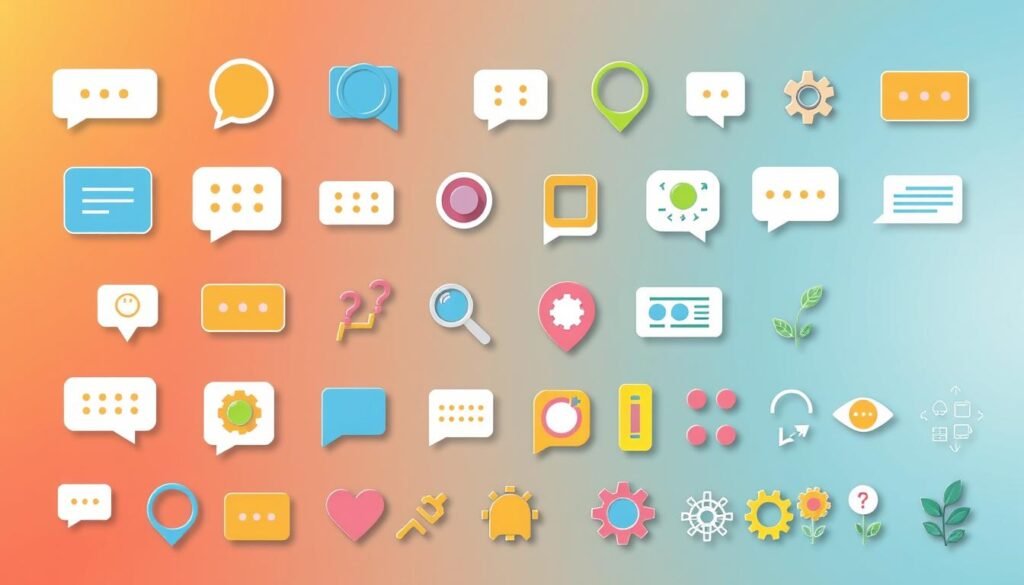The way we show interest can make a big impact. “I would love to learn more” is common but may not show real enthusiasm.
We need to find better ways to stand out. Using the right words can help us make lasting impressions.
Clear communication is key in business. It helps build stronger connections with others.
We’ll explore better ways to express interest. These tips will help you show real enthusiasm in professional settings.
Understanding the Importance of Clear Communication
Clear communication is key to success in any job. Our words can shape our relationships and career paths.
Professional language helps us build connections. It can open doors to new chances.
Good communication is prized in business. Employers want people who can share ideas clearly.
Clear speech shows care for the job. It helps get our message across well.
How we show interest matters a lot. Vague words like “I would love to learn more” don’t work well.
Instead, use specific and eager language. This shows real interest in the topic.
Good communication is a powerful skill. It helps us navigate work with confidence.
By improving our speech, we can make lasting bonds. We can also unlock many new chances.
Alternatives to “I Would Love to Learn More”
There are better ways to show interest than “I would love to learn more.” These new phrases can make your message stronger.
Try saying, “I’m intrigued by this topic. Can we discuss it further?” This shows real interest in a polite way.
Or use, “I’m curious about this [topic]. How does it fit with my [skills]?” This links your interest to the subject.
You could also say, “I’m eager to explore this further.” Or try, “I’d be delighted to dive deeper into this.”
Choose the best phrase for each situation. It will help you make a better impression.
Using these new phrases can boost your professional talks. They’ll show your interest more clearly and strongly.
Tailoring Your Interest to the Context
Consider the specific context when expressing your interest. Your approach may vary depending on the situation.
Practicing context-specific communication helps make a positive impression. It shows your professionalism in different settings.
At networking events, keep your tone casual and conversational. Focus on building rapport and showing genuine interest.
Ask thoughtful questions to learn about others and their work. Avoid formal language or heavy-handed pitches.
In job interviews, be more targeted and succinct. Highlight your skills that match the role.
Show how you can help the company reach its goals. Choose your words carefully and follow professional etiquette.
With clients, balance being friendly and professional. Show enthusiasm for the project.
Understand the client’s unique needs and priorities. Use language that shows attention to detail.
Tailoring your interest builds trust and strengthens relationships. It helps you connect better in various situations.

Building Professional Connections with Your Words
Words hold immense power in the professional world. Your language choice impacts how you build and nurture networking skills and relationships.
Crafting meaningful connections starts with understanding communication nuances. It plays a crucial role in fostering strong professional rapport.
Networking skills are vital for career growth. How you express interest and engage with others can make a big difference.
Careful word selection can convey genuine enthusiasm. It helps establish trust and build lasting professional relationships.
Your language should show real interest in others. Tailor your message to the specific context and individual you’re addressing.
This personalization shows you’re attentive. It creates a more meaningful connection with the other person.
Mastering relationship building through words can open new doors. It fosters partnerships and boosts your professional standing.
A thoughtful communication style makes you valuable and trustworthy. This sets the stage for long-term career growth and success.
Closing Your Message Effectively
Your message conclusion is vital for leaving a lasting impression. It’s your chance to encourage further interaction and set the stage.
Summarize the key points you’ve discussed in your message. Highlight your enthusiasm and the value you can offer.
Propose a specific next action, like scheduling a meeting. This makes it easy for the recipient to respond.
Close with a polite, personalized sign-off to strengthen the connection. Express gratitude for their time and show eagerness to connect further.
An effective conclusion can deepen the relationship. It can move the conversation forward in a meaningful way.
Practicing Your Expressions
Improving your communication skills is an ongoing process. Regular practice is key to mastering the art of expressing interest effectively.
Look for chances to use new techniques in your daily work talks. Try new phrases that show your real interest and.
Role-play with coworkers to test different ways of showing interest. Ask for feedback on how you did.
Write about your work talks in a journal. Think about what went well and what you could do better.
Communication is a skill you can improve over time. Keep practicing and be open to trying new things.
Be patient with yourself as you learn. Stay open to feedback as you get better at showing interest.
